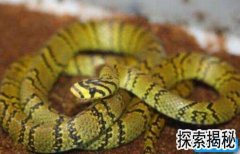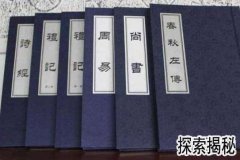seem与seem like的区别是什么?
seem和seem like的区别:1、seem意思有:似乎,好像 , 后接形容词或 名词。2、seem like意思有: 看上去好像 ,后接名词。双语例句seem1、You seem surprised at what he said.你对他所说的似乎感到意外。2、But to me they seem to be all the same.可是,在我看来,它们似乎都是千篇一律的。3、Only you can decide what to do if this applies to you, but you seem to have to make some sort of compromise.当它发生在你身上时,只有你自己的力量可以决定如何去做,但是,看起来你从某种程度上做了妥协。seem like1、The bananas grow together, which seem like "hands". 香蕉长在一起,看起来像"手"。2、Financing your studies may seem like a tall order, but there is plenty of help available. 学费的筹措可能看似一个大难题,好在你可以获得许多帮助。3、The intrinsic quality of a work of art is starting to seem like its least important attribute. 一件艺术品的内在品质似乎开始成为它最不重要的属性。
seem和like的区别
如下:seem是动词。like = 是多功能单词,可以做动词,名词,副词,形容词,前置词,连接词,等等来用。虽然表面上看 seem 和 like 有一样意思,你这里问的 seem 是动词,而 like 是连接词,前置词和形容词。seem,英语单词,名词、不及物动词,作名词时意为“人名;(英)西姆”。作不及物动词时意为“似乎;像是;装作”。seem双语例句:1、You seem surprised at what he said.你对他所说的似乎感到意外。2、But to me they seem to be all the same.可是,在我看来,它们似乎都是千篇一律的。3、Only you can decide what to do if this applies to you, but you seem to have to make some sort of compromise.当它发生在你身上时,只有你自己的力量可以决定如何去做,但是,看起来你从某种程度上做了妥协。
seem like用法
seem like 表示“好像,看上去像”,like 是介词,后面接名词。 例句:She seems like a reasonable person.她看来是个通情达理的人. 扩展资料 seem like:仿佛…似的 例句: On the show you three seem like such good friends. 在节目里你们三个似乎看上去很要好。 This doesn't seem like a place to study. 这里可不像学习的`地方。 But what may seem like a great idea often isn't. 可是一个看似绝妙的主意往往并非如此。
seem like造句
seem like造句:1、The bananas grow together, which seem like "hands".香蕉长在一起,看起来像"手"。2、Financing your studies may seem like a tall order, but there is plenty of help available.学费的筹措可能看似一个大难题,好在你可以获得许多帮助。3、The intrinsic quality of a work of art is starting to seem like its least important attribute.一件艺术品的内在品质似乎开始成为它最不重要的属性。4、Although these may not seem like large effects, the impact of early attention problems continued throughout the children's academic careers.虽然这些影响看起来似乎不大,但早期注意力问题的影响继续贯穿于孩子的整个学业生涯。5、While the "five-second rule" might not seem like the most pressing issue for food scientists to get to the bottom of, it's still worth investigating food myths like this one because they shape our beliefs about when food is safe to eat.尽管“五秒法则”看上去并不像是食品科学家们最为紧迫需要深究的问题,但是调查类似的食物传言还是值得的,因为这形成了我们对于何时吃食物是安全的理念。
seem like造句10句
1.Thus reduced to its essentials,what chinese want might seem like an exercise inhigh-concept ethnic stereotyping.
如此看来,《中国人要什么》的核心内容,似乎只是将民族刻板印象发展到了深入的水平.
2.This might seem like valuable ammunition.
这看起来似乎是宝贵的武器.
3.That may seem like a big dream,but that's never stopped cole before.
这个梦想可能看起来很宏大,但科尔从来不会因为这种原因而停下脚步.
4.All this makes mr romney seem like a hopeless flip-flopper.
所有这些都使得罗姆尼看上去像一颗不折不扣的墙头草.
5.That may seem like an interesting idea,but how many times do you need to buy anxbox?"
“这可能看起来像是一个有意思的想法,但一个人会买几次Xbox呢?”
6.Does this seem like a reasonable number?Yeah?
它看起来像一个合理的数字吗?是的?
7.Implementing these processes may sometimes seem like an overhead,and not alldevelopment teams will have the infrastructure or the resources to implementthese fully.
实施这些过程有时看起来像空中楼阁,并不是所有的开发团队都有足够的设施以及资源来完全实现它们.
8.Although most of the time they seem like little devils,children are true angels thatteach us a lot about how we can better our life.
尽管看起来孩子们多数时间像小魔鬼,其实他们是真正的小天使,教会我们很多如何使生活更美好的方法.
9.The death of a loved one may seem like the end of the world,but you shouldrealize that life must go on.
心爱人的死亡可能看来像你是到了世界的末日,然而你也应该明白,生活必须继续下去.
10.I seem like a child because I onlysay childlike things in your English.
在你看来,我就像个小孩,因为我只能说些孩子般的话.
seem to be的be是be动词吗?
be不是be动词,就是be的意思。be动词包括am、is、are三个词。Be 动词就是句子中如果没有实意动词(例如:write,buy)之类的动词,就直接在主语后面加Be动词。而如果是句子中有实意动词,那么如果要改为一般疑问句,就要借助DO(do也称为助动词)。1、am、is用于主语表单数概念的句中,第一人称单数I配合am来用,常见句型“I am+…”;第三人称单数He、 She 、 It配合is使用,常见句型“She/He/It is +…”。例句:I am ten years old.我十岁了。2、 Are主要用于主语表复数概念的句中(包括一些简单集体名词,如:people,family),第二人称(You)配合are使用,常见句型:“You are+…”。例句:The family are all at home.全家人都在家。扩展资料be动词的变形1、现在时 I am, you are, he/she/it/ is, we/you/they are;名词单数、不可数名词用is,复数用are。2、缩略式 I'm, you're, he's, we're, you're, they're3、否定缩略式 I'm not, isn't, aren't4、过去时 I was, you were, he/she/it/ was, we/you/they were;名词单数、不可数名词用was,复数用were。5、否定缩略式 wasn't, weren't6、过去分词 been7、现在分词 being





